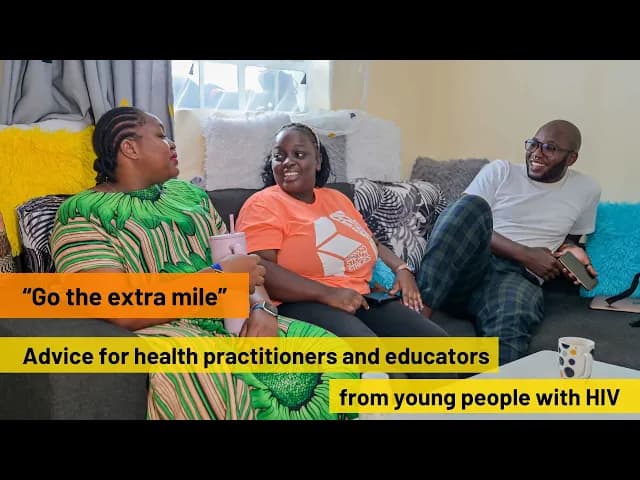So health care practitioners and health care educators can support people living with HIV through psychosocial support.
Going beyond the normal check-up. So, hi, how are you doing? Have you missed any doses?
Just going to the wellness aspect. What happened in your life? Because, things happen in people's lives every day. Just because they're living with HIV doesn't mean that life will stop living. It will still life.
Somebody's got broken up with somebody, lost a loved one. Somebody lost their job. So HIV it is not just a health issue.
I always think it's also a social issue. So try and go the extra mile. Do a wellness check. Know where is this person? Do they still have the job that they had three months ago when they came in? Are they still dating the same person that they were dating three months in the last two months when you saw them?
Is their child still acting up the way they were acting up three months ago, or they have changed like doing those tiny, check-ups help people know that you're not seeing them just as a client.
You're also seeing them as a person who has life going on. But they have to live with HIV and take this treatment for the rest of their life.
